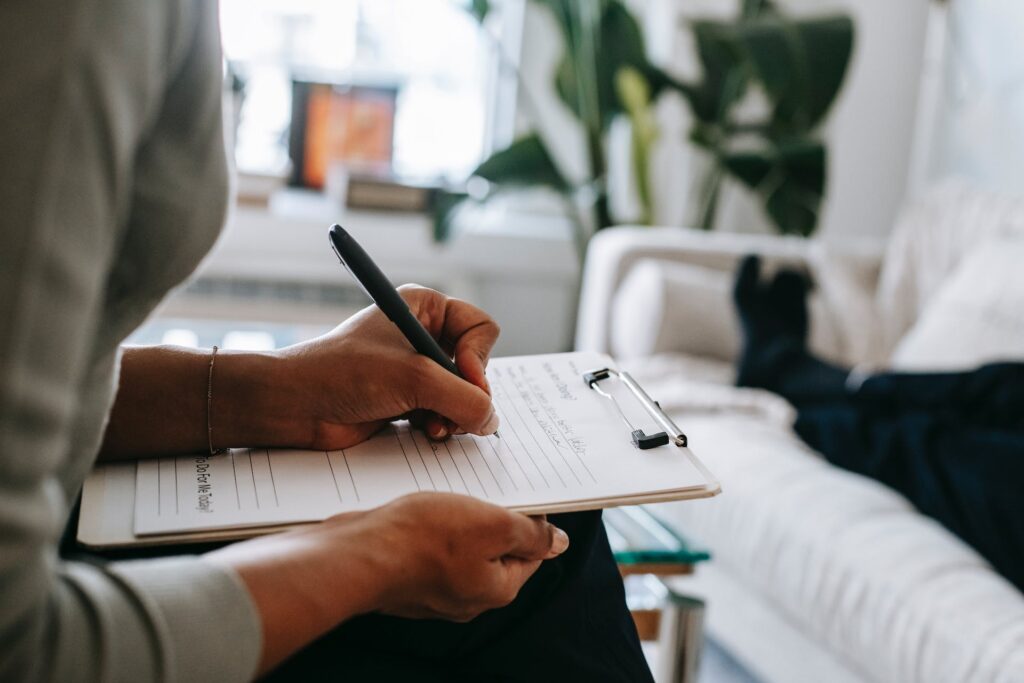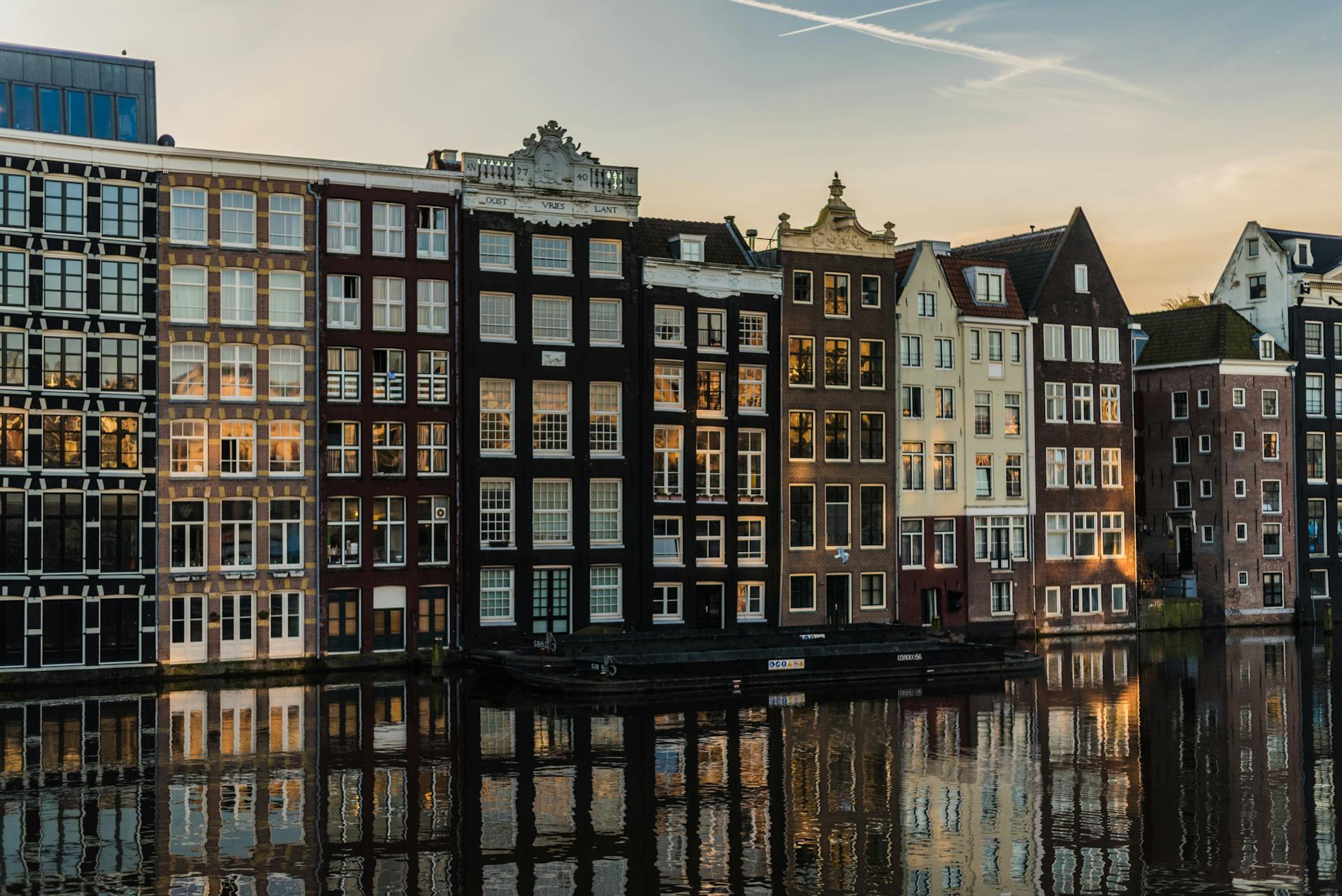Amsterdam, the Netherlands’ thriving capital, is renowned for its stunning canals, multicultural population, and progressive attitude, yet beneath its charming façade are people who are struggling with the search for finding the right mental health support. For more general information on finding therapy outside of Amsterdam, read How to Navigate Therapy in the Netherlands.
No matter what kind of mental health condition one may have—depression, anxiety, ADHD or anything else—seeking therapy is the first and most important step toward recovery and self-discovery. However, for a lot of people, the process of finding a therapist in Amsterdam can resemble getting through a maze.

Why is it so hard to find a therapist in Amsterdam?
The answer is several interrelated circumstances that make it difficult to find mental health practitioners in the city. Initially, there is the indisputable stigma associated with mental health that endures in numerous nations, including the Netherlands. Even with initiatives to increase understanding and acceptance, some people still consider going to therapy as a show of weakness rather than as a brave and self-care measure. For example, a study conducted in the Netherlands found that 68.4% of respondents thought talking about their mental health condition would hurt their chances of getting a job.
Secondly, the number of people seeking therapy in Amsterdam has increased dramatically as a result of its expanding population and greater awareness of the value of mental health. Sadly, there is a shortage of mental health specialists due to this growth. Consequently, this has led to lengthy waiting lists and restricted availability. In fact, over 80,000 people wait in line for mental health services annually. Data from Statistics Netherlands for 2012 through 2019 show that these patients usually have to wait 15 weeks on average.
How to get therapy covered by Dutch health insurance
Another contributing factor is the complexity of the Dutch healthcare system. Navigating insurance coverage, referrals, and treatment options can be a bit much, especially if you’re unfamiliar with the system’s intricacies. You need a general practitioner’s (GP) reference letter to qualify for insurance to cover therapy costs. They evaluate patient’s complaints and make an effort to put them in contact with the right medical professional. But this process can be lengthy. In fact, it may take several reminders before they find the ideal fit for your needs.

Mental Health Care in the Netherlands (through health insurance): the Dutch system follows a stepped care process. It can be quite tedious and long before you get to see a therapist but it will be covered (at least partly) by your health insurance. Here are the steps:
- Live and work in the Netherlands and have a Dutch health insurance
- If you don’t have a GP (huisarts), register to one
- Visit your GP and discuss with them about your problems and what you need: GP is the first-line counsellor who can treat minor psychological issues, in collaboration with the ‘practice assistant mental health care’ (POH-GGZ) -> 7 sessions maximum
- If your GP decides that you require therapy, they will refer you to an institution from the GGZ (Dutch Association of Mental Health and Addiction Care)
- Basic Mental Healthcare (BGGZ): short-term treatment for mild to moderate psychological problems (maximum of 12 sessions)
- Specialized Mental Healthcare (SGGZ): more comprehensive psychological diagnosis and treatment for more complex and specialised problems (treatment up to 1 year with possibility of extension)
- The GGZ takes over and will schedule an intake appointment with you: the intake appointment with a clinical psychologist lasts usually 1.5 hours -> you discuss your specific request for help and they will advice about the appropriate treatment
- Based on your treatment plan, you are assigned with an appropriate therapist who will have the following sessions with you.
Note: for the insurance to cover the costs of Basic and Specialised Mental Healthcare, you must be diagnosed with a DSM-V psychological disorder during your intake appointment.
Personal experience: Finding a therapist through a GP in Amsterdam
I was feeling depressed and was struggling. My GP referred me to a therapist after one session and I was looking forward to get the help I needed. However, I wasn’t aware that this meant that I will have a label on my problem. During the intake appointment, the psychologist explained to me that I didn’t exactly fit the criteria for a DSM-V diagnosis but that they could see that I needed help. They diagnosed me with unspecified depressive disorder, allowing me to have therapy with them that was covered by insurance. Even though I knew that the diagnosis was not necessarily severe, it still felt weird to be categorised like that.
Overall, I am quite happy with the help that I got, the therapy was great and successful and I felt much better after 10 sessions. However, this was a long and tedious process which worked out for me because I was really motivated to get help. The timeline was the following:
- I asked my GP for help early February
- Intake appointment was mid-March
- First therapy session was end of March (almost 2 months after my initial call for help)
I think that it is pretty great that you can get therapy covered by your insurance in the Netherlands and they have really high quality mental health care institutions, but the truth is, they don’t have enough capacity. You need to wait at least 6-8 weeks before you can see a therapist and your issues have to be severe enough that you fit the criteria for a diagnosis.
If you can afford it (or if your insurance covers it), private therapists have some advantages:
- Easier and quicker to get help
- You won’t necessarily get a diagnosis -> good in two ways:
- No stigmatising labels
- You can get help even with mild problems
- You can get alternative therapy approaches (the GGZ sticks to evidence-based treatment such as CBT, which might not work for everyone)
Therapists who speak English in Amsterdam
Additionally, seeking expat therapy in Amsterdam may come with many language barriers. Finding an English-speaking therapist in Amsterdam can be challenging, even though many professionals in the field speak multiple languages. Furthermore, it takes work to get someone who speaks your language and comprehends your context and cultural background, which is crucial for effective therapy.
List of mental health resources in Amsterdam
For Urgent Crises
- Suicide helpline (113 Zelfmoordpreventie) from the national Dutch suicide prevention centre (also in english): https://www.113.nl/english has a crisis chat, crisis telephone and other resources.
Sexual Assault Centre
- The CSG (https://centrumseksueelgeweld.nl/en/) can be reached by telephone 24 hours a day on 0800-0188.
Centre for Addiction (Jellinek)
- Information about treatment and help on their website (https://www.jellinek.nl/english/) Need immediate help? You can reach them on: 088 505 1220.
Amsterdam Student Helpline
- There is a helpline in Amsterdam (https://www.allearsamsterdam.com/) for students called All Ears. Psychology students offer a listening ear (not counselling or therapy) to fellow students who wish to talk.
Trusted Therapist Directories
- There are numerous therapist directories to help you search for both in-person or online therapists in Amsterdam. Find a therapist in Amsterdam based on your price range and therapist specialisations.
The right therapist in Amsterdam and beyond
So, how can you overcome these challenges and find the right therapist in Amsterdam? Even though it could seem overwhelming at first, you can get the help you need if you have patience, persistence, and some advice. Here are some pointers to aid you with your journey:
- Define Your Needs: Before you start your quest, consider the characteristics you are looking for in a therapist. Think about the treatment approach, specialization, and cultural sensitivity you want. This can help you narrow down the list of potential therapists and help you choose the right one for you.
- Ask for Recommendations: Consult with friends, family, or colleagues who have previously received therapy in Amsterdam. Based on their experiences, you may get wise advice. Your searching for therapist recommendations can also be facilitated by participating in online discussion forums and support groups.
- Utilise Online Directories: Therapists in Amsterdam can be found on several internet directories and platforms. You can even get their qualifications, specialisations, and contact details here. Websites like Therapiepsycholoog.nl, Zorgkaart Nederland, It’s Complicated, and Psychology Today are great places to start.
- Consider Teletherapy: Many therapists have switched to providing treatment sessions online after the COVID-19 outbreak. If you prefer the flexibility of virtual sessions or cannot find a good therapist in Amsterdam, this can be a helpful choice.
- Reach Out to Professional Associations: Finding a therapist in Amsterdam can be made easier with the help of organizations like the Dutch Association for Psychiatry (NVvP) and the Dutch Association of Mental Health and Addiction Care (De Nederlandse ggz). They could also put you in touch with therapists who focus on particular aspects of mental health – the ones you might be seeking.
- Be Persistent: Don’t be discouraged if you encounter obstacles or setbacks in your search for an Amsterdam therapist. Keep reaching out to different professionals, and don’t hesitate to ask questions or seek clarification regarding their services. Remember, finding the right therapist is worth the effort.
- Consider Alternative Options: If traditional therapy isn’t feasible for you, explore alternative forms such as support groups, self-help resources, or online therapy platforms. Finding a solution that works for you while meeting your unique needs is essential.
Finding a Therapist in Amsterdam with platforms like It’s Complicated
Undeniably, finding the right therapist in Amsterdam can be complicated. But with the above-given factors in place, you’ll reach a safe decision. Or, you can simple down the process with a therapist directory platform such as It’s Complicated.
The platform, while one of many, has access to more than 2,000 mental health practitioners from more than 80 countries. They provide in-person and online therapy in almost 100 languages. Our top priority is your comfort, so we provide secure communications, hassle-free invoicing, and a video solution that complies with GDPR. We also offer a free online therapist matching service, completed by trained psychologists.
